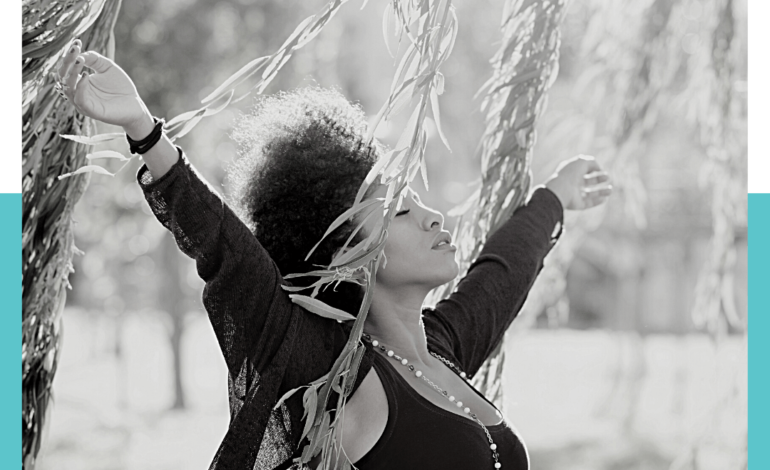“Being a black man in America means being my brother’s keeper. Being a black man in America means being my brother’s keeper while keeping a distance from my brother because I don’t trust him further than I can see him. It’s believing the cops don’t care about you. It’s learning how not to doubt yourself because when you’re born everyone else already does.”
-Poet Prentice Powell, written following the fatal police shooting of Michael Brown in Ferguson, Missouri, in 2014
Black Americans suffer a range of emotional and mental distress and trauma from witnessing the violent deaths within their homes, families, and communities. Shortly after the video of George Floyd’s murder on May 25, 2020, was heavily shared on social media, the U.S. Census Bureau found that 41% of Black Americans were suffering from depression, anxiety, or both. The United States was founded on racism, and since the beginning of slavery, Black Americans have suffered and continue to suffer due to systemic racism. This has resulted in poor mental health outcomes primarily because Black Americans are not likely to seek professional help, partly due to the generational black trauma and systemic racism across the United States.
Black Americans experience similar rates of mental health disorders as other Americans in general, but there are stark disparities between Black Americans and White Americans in terms of mental health treatment. Black Americans who live under the poverty line are more than twice as likely to report severe mental and emotional distress compared to U.S. adults who have significant financial means. In addition, symptoms of depression among Black people are more disabling, persistent, and treatment-resistant than those seen in White people.
Mental health and addiction statistics among Black Americans
These statistics show that Black Americans do not engage in drug use or struggle with mental health disorders more than any other American, but Black Americans do struggle with access to treatment
Today, Black Americans represent 13% of the population in the U.S. and about the same percentage of drug users, but they represent 44% of those incarcerated for drug crimes.
Rates of mental illnesses in Black Americans are similar to those of the general population. However, Black Americans often receive poorer quality of care and lack access to culturally competent care.
The rate of illegal drug use among Black Americans is slightly higher than the national average (12.4% vs. 10.2%).
The rate of alcohol misuse in Black Americans is slightly lower than the national average (44.2% vs. 52.7%), including heavy drinking (4.5% vs. 6.2%) and binge drinking (21.6% vs. 23%).
The rate of opioid overdose among African Americans (6.6%) is less than half for non-Hispanic whites (13.9%).
Black Americans are less likely to be offered evidence-based medication or psychotherapy for their mental health disorder or addiction than the general population.
Only one out of three Black Americans who need mental health will receive it.
When Black Americans seek help for an addiction or mental health disorder and prefer a Black provider, it can be difficult finding Black psychologists since they still make up only about 4% of the doctoral-level psychology workforce.
Mental health and addiction treatment barriers for Black Americans
Despite recent efforts to improve mental health and addiction services for Black Americans, treatment barriers for quality care remain and include the following:
The stigma associated with mental illness and addiction in the Black community
Many healthcare providers lack acceptance and knowledge of racism, including systemic racism and internalized racism.
High poverty rates among Black Americans
Unhealthy masculinity norms in the black community which are known to stunt emotional and mental growth
Lack of access to quality mental health, medical, and addiction care
Implicit racial bias from medical providers resulting in Black Americans to distrust the healthcare system
Lack of healthcare providers from diverse racial/ethnic backgrounds (lack of Black providers)
Lack of culturally competent providers
Lack of insurance, underinsurance
Lack of acknowledgment of racial trauma, including generational trauma
AKUA Mind & Body is a fully accredited and licensed mental health, substance use and addiction treatment center providing individualized therapy for adult men and women. We have several locations throughout the Sacramento Region, Los Angeles & Orange County Region, and San Diego Region.
At AKUA Mind & Body, we incorporate the mind, body, and spirit into our holistic approach while blending clinical excellence and an integrative East-meets-West therapeutic process. AKUA’s integrative treatment approach combines Western evidenced-based medication-assisted treatment with holistic. Eastern traditions to provide the highest quality of care to our clients. We also treat individuals diagnosed with both substance use and mental illnesses, also known as a co-occurring disorder.
AKUA Mind & Body employs a multidisciplinary treatment team that includes admission intake counselors, therapists, dietitians, and addiction medicine physicians who work together to provide an integrated approach to treatment.




